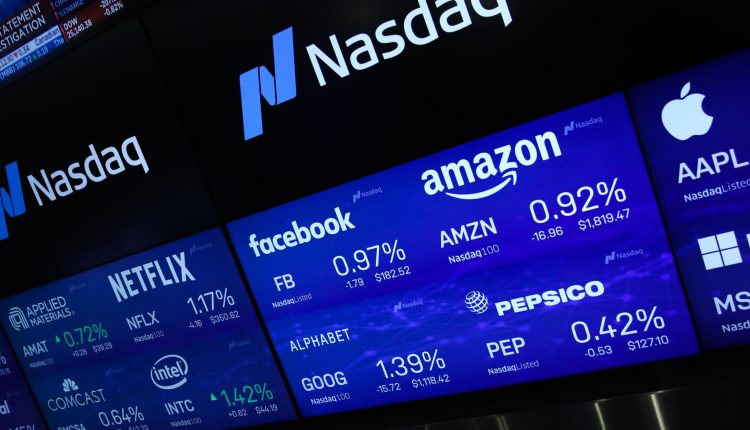Wall Street thinks these 2 tech giants could be next to issue dividends after Meta
Following last week’s surprise Meta Platforms dividend announcement, Goldman Sachs analysts identified 15 companies that could be next. Their list includes the two final names in our Significant Six mega-caps that don’t already offer dividends. Goldman’s jumping-off point happened last Thursday evening when Meta declared its first-ever dividend — a 50-cent-per-share quarterly payout. Coupled with a knockout fourth quarter, the Club stock soared more than 20% on Friday — adding a single-session record $205 billion in market value. Not surprisingly, Meta shares came off the boil on Monday and Tuesday. They resumed their climb on Wednesday. According to Goldman analysts’ models, Alphabet ranked No. 1 and Amazon ranked No. 8 on their list as companies that have “historically suggested a relatively high propensity to initiate a dividend.” They said some of the characteristics of a company likely to initiate a dividend include, big in size, stable earnings, high profit margins, and reasonable valuations. Both Alphabet and Amazon fit the bill and are part of Jim Cramer’s Charitable Trust , the portfolio used for the CNBC Investing Club. Goldman said, “On average, share prices react positively to dividend initiations and increases.” Meta’s run last Thursday proved that point. The analysts added that dividend issuance could suggest strength in a company’s future earnings growth prospects, and therefore “widen a company’s pool of potential shareholders to include income-oriented investors.” Companies with dividends pay them out to shareholders quarterly — providing an incentive to own the stock because they boost investor returns. The Club seeks out dividend-paying stocks since we like to get paid to hold pieces of companies that we believe in. We encourage investors to reinvest their dividends. However, we do not – and instead, give the payouts and all realized annual net gains from the Trust portfolio to charity, as is our mission. According to Goldman’s conversations with management teams, companies are trying to figure out how best to give extra cash to shareholders in the current macro environment. In addition to dividends, companies also use cash to buy back their stocks. Some companies do both. Some do either one. Some do neither dividends nor buybacks. Paying a dividend depends on the fundamentals of a company and a whole host of factors. But typically, companies in high-growth sectors including tech, historically have not decided to pay dividends because they require a lot of investment to grow their businesses. Instead, they’ve preferred buybacks — which don’t come with the same long-term commitment as a declared dividend. Like Alphabet and Amazon, they don’t have dividends but regularly repurchase their stocks, which lowers share counts and makes each investor’s ownership in the company greater, even if they don’t buy any more stock. As the big tech companies mature, they are increasingly offering dividends and periodic buybacks. So, the four Significant Six companies doing both are, as mentioned, Meta, as well as Apple , Microsoft and Nvidia . We would certainly like to see Alphabet and Amazon become dividend-payers. Only time will tell. (Jim Cramer’s Charitable Trust is long META, GOOGL, AMZN, NVDA, AAPL, MSFT. See here for a full list of the stocks.) As a subscriber to the CNBC Investing Club with Jim Cramer, you will receive a trade alert before Jim makes a trade. Jim waits 45 minutes after sending a trade alert before buying or selling a stock in his charitable trust’s portfolio. If Jim has talked about a stock on CNBC TV, he waits 72 hours after issuing the trade alert before executing the trade. THE ABOVE INVESTING CLUB INFORMATION IS SUBJECT TO OUR TERMS AND CONDITIONS AND PRIVACY POLICY , TOGETHER WITH OUR DISCLAIMER . NO FIDUCIARY OBLIGATION OR DUTY EXISTS, OR IS CREATED, BY VIRTUE OF YOUR RECEIPT OF ANY INFORMATION PROVIDED IN CONNECTION WITH THE INVESTING CLUB. NO SPECIFIC OUTCOME OR PROFIT IS GUARANTEED.
Read the full article here

